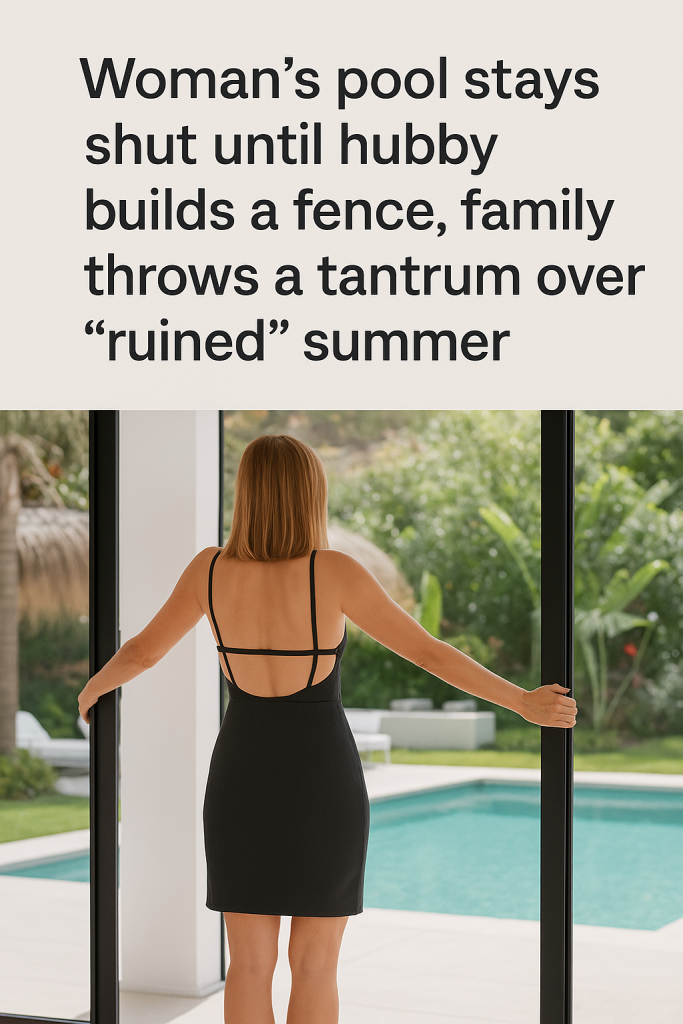A family’s summer plans have been thrown into disarray after a woman decided to keep their backyard pool closed until her husband builds a safety fence, sparking a heated dispute and accusations of a “ruined” summer.
The controversy began earlier this year when the woman, a mother of young children, insisted on implementing additional safety measures around the pool area. According to sources close to the family, the woman had previously installed child-safe sliding door locks in the first two years of pool ownership to prevent accidental access by the children. Despite these precautions, she felt that a proper fence was essential to ensure the pool’s safety for everyone.
“Years one and two, I got child safe sliding door locks,” the woman reportedly shared, explaining her initial steps to protect the children. However, concerns about the pool’s accessibility without a physical barrier continued to weigh on her.
Her demand has caused friction within the household, particularly with her husband and extended family members who argue that the pool’s closure is an overreach that has spoiled their summer enjoyment. Family gatherings and plans for poolside fun and relaxation have been canceled or postponed, leading to frustration and emotional outbursts described by some as a “tantrum.”
Sources reveal that the husband had been reluctant to prioritize building the fence, citing cost and time as constraints. This reluctance led the woman to take a firm stand, insisting the pool remain off-limits until the fence is erected — a decision she believes is necessary to prevent potential accidents. The woman’s firm stance underscores a growing awareness among parents nationally about the importance of pool safety, especially in homes with young children.
Experts agree that pool fencing is one of the most effective measures to reduce drowning risks. According to child safety guidelines, physical barriers such as fences with self-closing and self-latching gates significantly decrease the likelihood of unsupervised pool access by young children. This context may help explain the woman’s unwavering position despite family pushback.
“Pools provide great recreation opportunities for families, but without proper safeguards, they pose a serious hazard,” commented a child safety advocate. “It’s understandable that parents want the highest level of protection, even if it means temporarily disrupting family plans.”
Adding to the tension, some family members have expressed that the pool closure has far-reaching social impacts, from spoiling celebrations to limiting children’s summertime activities. The dispute highlights the balancing act many families face between safety priorities and social or leisure expectations.
For now, the pool remains closed, with the woman standing firm on her condition that the fence be constructed before the water is used again. It remains to be seen how quickly the husband will act to meet this demand and what compromises will be made to restore summer harmony.
This story resonates widely with families across the country navigating similar issues, reminding communities of the importance and challenges of maintaining safety in home environments.
As the summer unfolds, all eyes are on this family’s next move — and the fence that might save more than just a season’s fun.



